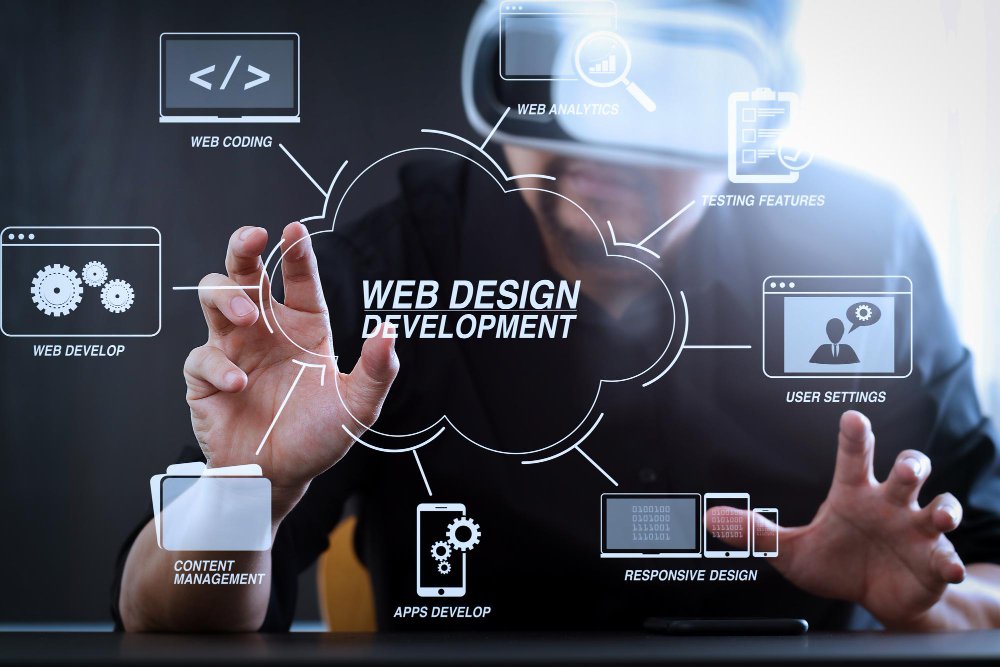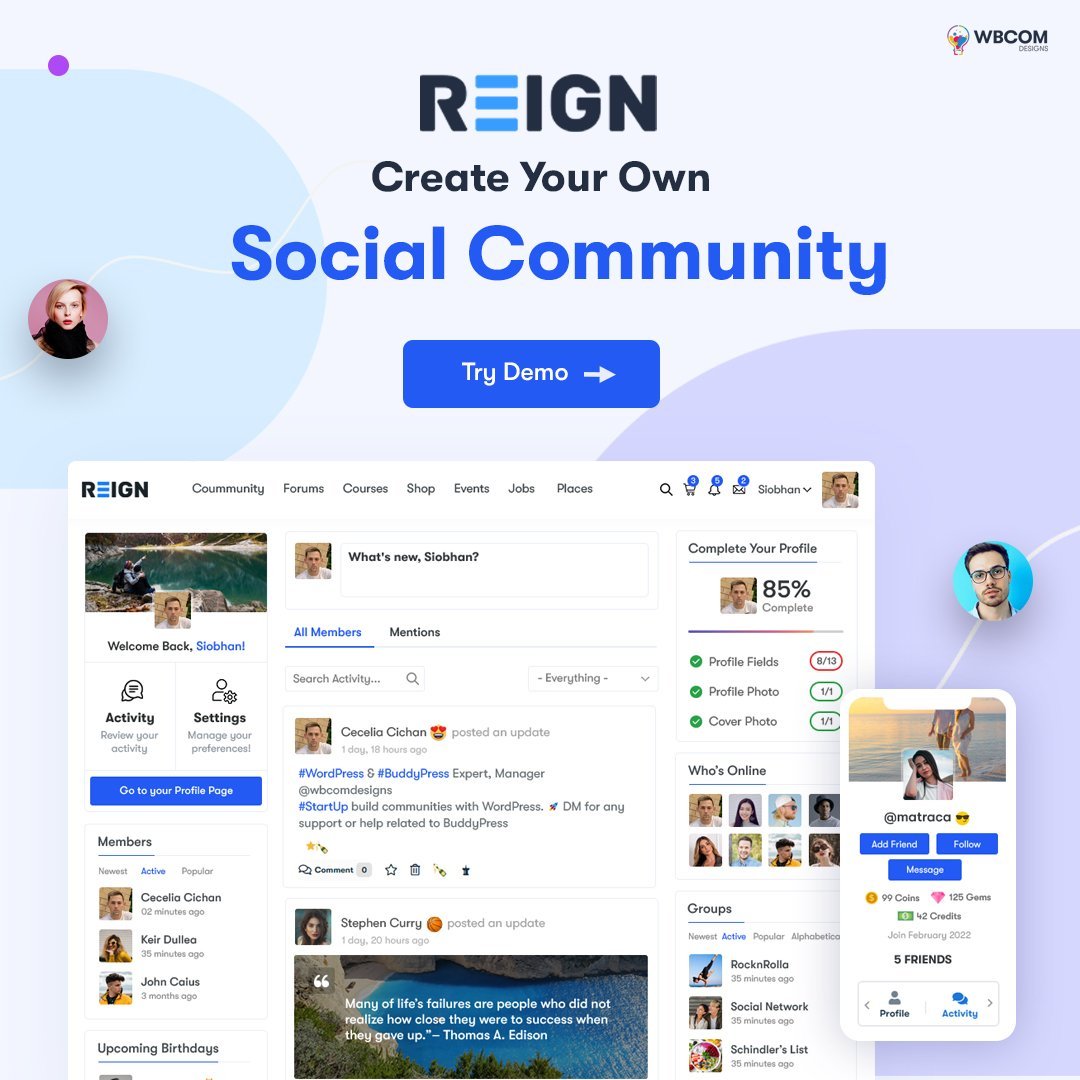In recent years, the integration of Artificial Intelligence (AI) into web development has emerged as a game-changer, ushering in a new era of innovation and efficiency. As technology continues to evolve at an unprecedented pace, AI’s role in shaping the digital landscape has become increasingly pivotal, extending its influence far beyond the confines of traditional tech sectors. Today, AI stands at the forefront of transformative change across diverse industries, from healthcare and finance to e-commerce and entertainment. In this blog, we embark on a journey to explore the profound impact of AI in web development. We’ll delve into how AI-driven algorithms and tools are revolutionizing website design, content creation, user experiences, and security. Moreover, we’ll discuss the challenges and ethical considerations that accompany this technological leap. By the end of this exploration, you’ll gain a deeper understanding of AI’s significance in modern web development and be equipped with insights to harness its power for your own web projects. Welcome to the future of web development, where AI takes center stage.
Table of Contents
ToggleUnderstanding AI in Web Development
Artificial Intelligence (AI) is a transformative technology that has reshaped numerous industries, and web development is no exception. In the context of web development, AI refers to the utilization of advanced algorithms and machine learning models to enhance various aspects of website creation, management, and user interaction.
AI’s relevance in web development lies in its ability to automate, optimize, and personalize the entire web experience. Unlike traditional web development approaches, which predominantly rely on human intervention and manual coding, AI brings automation to the forefront. It empowers developers and businesses to streamline processes, improve efficiency, and deliver more tailored user experiences.
Key components of AI-driven web development include:
- Machine Learning Algorithms: These algorithms analyze vast datasets to extract insights, predict user behavior, and make data-driven decisions regarding content presentation and user interactions.
- Natural Language Processing (NLP): NLP enables websites to understand and generate human-like text, making chatbots, content creation, and language translation more effective and responsive.
- Computer Vision: This component enables websites to interpret and process images and videos, leading to features like image recognition and automatic content tagging.
- Recommendation Engines: AI-driven recommendation systems provide personalized content suggestions, product recommendations, and user experiences based on user behavior and preferences.
- Automation Tools: AI automates routine tasks such as content generation, data analysis, and customer support, allowing developers and businesses to focus on higher-level tasks.
AI-Enhanced Website Design
AI has ushered in a new era of website design, revolutionizing the creative process and enhancing user experiences. One of its remarkable contributions is the way it improves the design process itself. Through advanced algorithms and machine learning, AI analyzes vast datasets of user behavior and design trends, enabling designers to make data-informed decisions. It offers valuable insights into color schemes, typography, and layout preferences, aiding in the creation of visually appealing and user-friendly websites.
Moreover, AI-generated design recommendations and layouts have become indispensable tools for web designers. These AI-driven systems can suggest design elements, content placement, and even entire website templates based on a brand’s identity and target audience. This not only streamlines the design process but also ensures consistency and coherence across web pages.
Perhaps one of the most impactful roles of AI in design is in responsive and adaptive web design. AI algorithms can assess the user’s device, screen size, and browsing habits in real time, optimizing the website’s layout and content accordingly. This dynamic responsiveness ensures that users have a seamless experience regardless of the device they are using, ultimately boosting engagement and conversion rates. In essence, AI has transformed website design from a static process into a dynamic, user-centric endeavor, setting a new standard for digital aesthetics and functionality.
Smart Content Creation
AI has ushered in a new era of smart content creation, transforming how websites generate and optimize their content. One of AI’s standout capabilities is its capacity to generate human-like text, allowing it to automate content creation efficiently. It can produce blog articles, product descriptions, and even news updates, saving time and effort for content creators. Moreover, AI-driven content optimization tools analyze user behavior and engagement patterns to tailor content for maximum impact. This ensures that website content remains relevant and engaging, enhancing the overall user experience.
AI’s influence extends beyond content generation. Content curation, SEO, and A/B testing have also undergone significant advancements thanks to AI. Content curation tools employ machine learning algorithms to sift through vast amounts of data and select the most relevant articles, images, or videos for a website’s audience. AI-driven SEO tools offer valuable insights, helping web developers improve their website’s search engine ranking by suggesting keywords, optimizing meta tags, and analyzing competitors. A/B testing, too, benefits from AI’s predictive analytics, enabling data-driven decisions to enhance website performance continually.
Notable examples of AI-powered content tools and platforms include GPT-3, which generates coherent and contextually relevant text, and tools like Clearscope and Surfer SEO, which optimize content for SEO by analyzing top-ranking pages. HubSpot’s Content Strategy tool assists in content planning, and platforms like MarketMuse employ AI to guide content creation and optimization strategies. AI has, undeniably, revolutionized content creation, curation, SEO, and A/B testing, empowering web developers to deliver more engaging, data-driven, and competitive websites in today’s digital landscape.
Personalization and User Experience
AI plays a pivotal role in enhancing personalized user experiences on websites. Through advanced algorithms and data analysis, AI tailors content and interactions to individual preferences, creating a more engaging and relevant online journey. Recommendation engines, a hallmark of AI, analyze user behavior and preferences to suggest products, articles, or services that align with a user’s interests. These engines not only improve user engagement but also drive conversions by offering personalized choices.
Furthermore, AI chatbots have revolutionized user interactions by providing instant and contextually relevant responses. These virtual assistants use natural language processing (NLP) to understand user queries and provide real-time assistance. They can answer questions, guide users through websites, and even handle transactions, all while maintaining a conversational and user-friendly tone. AI chatbots not only enhance user satisfaction through quick and accurate support but also reduce the workload on human customer service agents.
Also Read: Top 10 WordPress Funnel Builders for Enhancing Sales Performance
Speed and Performance Optimization
AI has become a game-changer in optimizing website speed and performance. By harnessing the power of machine learning algorithms, AI-driven solutions are revolutionizing the way websites deliver content to users.
One key area where AI excels is caching. Traditional caching techniques often struggle to predict which content to cache effectively, leading to inefficiencies. AI, on the other hand, uses historical user data and real-time analytics to intelligently cache web assets. This results in faster load times and a smoother user experience as frequently accessed content is readily available.
Image optimization is another facet where AI shines. Image-heavy websites often suffer from slower load times, but AI-powered image optimization algorithms can automatically compress and optimize images without compromising quality. These algorithms identify the best image formats, sizes, and resolutions for various devices and connections, ensuring that users get a fast-loading, visually appealing experience.
Moreover, AI helps with load balancing, distributing network traffic efficiently across multiple servers to prevent overloads and downtime during high-traffic periods. This dynamic resource allocation keeps websites responsive even under heavy user loads.
Numerous case studies highlight the effectiveness of AI-driven performance improvements. From major e-commerce platforms reducing bounce rates to media sites increasing their page load speeds, AI’s impact on web performance is evident across industries. As websites continue to demand faster load times and smoother experiences, AI emerges as a vital tool in achieving these goals, offering both businesses and users a win-win solution.
Also Read: Unlocking Efficiency: Exploring Excel Formula Generator AI Tools
Security and Fraud Detection
AI plays a pivotal role in bolstering web security by augmenting traditional cybersecurity methods with advanced threat detection and prevention capabilities. Through its ability to analyze vast datasets and recognize patterns, AI becomes a formidable guardian against cyber threats.
AI-powered threat detection employs machine learning algorithms to scrutinize network traffic, flagging unusual or suspicious activities in real time. This proactive approach allows security teams to identify potential threats swiftly, even before they manifest into full-fledged attacks. Moreover, AI can assess and predict vulnerabilities within a web infrastructure, assisting in patch management and reducing the risk of exploitation.
One prominent example of AI-enhanced security is the use of behavior-based anomaly detection. AI models, such as neural networks and deep learning algorithms, can analyze user behavior patterns to distinguish between normal and abnormal activities. If an unusual pattern emerges, the system can trigger alerts or initiate automated responses, preventing unauthorized access or data breaches.
Another application is AI-driven authentication systems, which employ biometrics, facial recognition, or behavioral analysis to verify user identities with a high degree of accuracy, minimizing the risk of identity theft or fraudulent access.
AI revolutionizes web security by continuously monitoring and adapting to evolving threats, enhancing threat detection, and offering robust authentication methods. It forms a crucial component of modern cybersecurity strategies, safeguarding web assets against a dynamic threat landscape.
Also Read: Exploring The Top AI Tools For Streamlining Business Processes
Future Trends and Innovations
The future of web development is inexorably tied to the continued integration of Artificial Intelligence (AI) into its framework. Here, we delve into some compelling emerging trends that promise to reshape the web development landscape.
AI’s Impact on Voice and Visual Search
Voice and visual search are poised to transform how users interact with the web. AI-driven natural language processing (NLP) systems are becoming adept at understanding voice commands, leading to more intuitive and conversational interactions with websites. Visual search, powered by AI’s image recognition capabilities, enables users to search the web using images rather than keywords. This innovation is set to revolutionize e-commerce and content discovery, making web development increasingly focused on optimizing for voice and image-based interactions.
Integration of AI with IoT Devices
The Internet of Things (IoT) is expanding at a rapid pace, and AI is the linchpin that will enable smart devices to communicate seamlessly with web applications. AI-driven analytics will process vast amounts of IoT-generated data, enhancing user experiences and enabling proactive decision-making. This integration will usher in a new era of personalized services, predictive maintenance, and data-driven insights.
As AI matures and becomes more deeply integrated into web development practices, we can anticipate a web that is not only more intuitive and visually responsive but also deeply interconnected with our physical surroundings through IoT devices. These trends are poised to redefine the digital landscape, offering exciting opportunities for businesses and developers to create more immersive and intelligent web experiences.
Also Read: Unlocking Learning Opportunities: Microsoft’s Free Online Courses with Certification
Challenges and Considerations
As AI increasingly permeates web development, it brings with it a host of challenges and ethical considerations that demand careful attention.
Data Privacy
One of the foremost concerns is data privacy. AI-driven web applications often rely on vast amounts of user data, raising questions about how this data is collected, stored, and used. Ensuring robust data protection measures and compliance with privacy regulations like GDPR is paramount.
Bias and Fairness
AI algorithms can inadvertently perpetuate biases present in their training data. This can lead to discriminatory outcomes, such as biased content recommendations or unfair user experiences. Developers must actively work to identify and mitigate bias, ensuring fairness and inclusivity.
Transparency
The “black-box” nature of some AI systems can be problematic. Users and stakeholders may struggle to understand how AI decisions are made. Transparency in AI algorithms and their decision-making processes is crucial for building trust and accountability.
Responsible AI Development
Responsible AI development is a cornerstone of ethical web development. It involves conducting rigorous ethical assessments, establishing guidelines for AI usage, and continuously monitoring AI systems for unintended consequences.
Addressing these challenges requires a multidisciplinary approach involving developers, data scientists, ethicists, and legal experts. Striking a balance between harnessing AI’s capabilities and safeguarding against its potential pitfalls is essential for ensuring the responsible and ethical use of AI in web development. Ultimately, ethical considerations should guide every stage of AI integration, from concept to deployment, to create web experiences that benefit both businesses and users while upholding ethical standards. The AI development company specializes in creating cutting-edge artificial intelligence solutions to address various business challenges.
Also Read: Five Reasons Why Protecting Data Is Crucial in Today’s Tech-Driven World
Real-World Examples: Netflix
Netflix, the global streaming giant, has harnessed the power of AI to revolutionize the way we consume content. Their recommendation system, often cited as one of the most prominent AI success stories, employs machine learning algorithms to analyze user behavior and preferences. By collecting data on what users watch, how long they watch, and their interactions with the platform, Netflix fine-tunes its content recommendations.
The outcomes and benefits of Netflix’s AI-driven approach are remarkable. By delivering tailored content suggestions to each user, they have significantly increased user engagement and retention. In fact, it’s estimated that Netflix’s recommendation system saves the company over $1 billion annually by reducing subscriber churn.
Furthermore, Netflix’s AI extends beyond recommendations. It’s used for content optimization, helping them create original series and movies that resonate with specific audience segments. This data-driven approach has resulted in a string of hit shows, such as “Stranger Things” and “The Crown.”
Netflix’s AI-driven approach has not only transformed the way we watch and discover content but has also fueled its immense growth and profitability, making it a standout example of effective AI integration in the entertainment industry.
Conclusion
The integration of Artificial Intelligence (AI) into web development has ushered in a new era of innovation and efficiency. Throughout this blog, we’ve explored the myriad ways AI is revolutionizing web development, from enhancing website design and content creation to personalizing user experiences and optimizing performance. The key takeaways are clear: AI offers a powerful toolkit for web developers and businesses to stay competitive and deliver exceptional digital experiences.
We encourage readers, whether they are seasoned developers or business owners, to embrace AI solutions for their web projects. By doing so, they can harness the capabilities of AI-driven tools and algorithms to streamline their workflows, improve user engagement, and ultimately achieve their online goals more effectively. It’s not just about staying up-to-date; it’s about unleashing the full potential of their digital presence.
In the ever-evolving landscape of web development, AI stands as a transformative force. Its ability to analyze vast datasets, make real-time decisions, and adapt to user preferences is reshaping the way we create and manage websites. As we look to the future, the transformative power of AI in web development is poised to continue, offering exciting possibilities that will shape the internet of tomorrow. Embracing AI is not just an option; it’s a strategic imperative for those who wish to thrive in the digital age.
Interesting Reads:
10 Best Affiliate Platforms And Networks Compared (2024)
Ultimate WordPress Shortcut: One Click, 4500+ Possibilities With Template-Ready Templates








